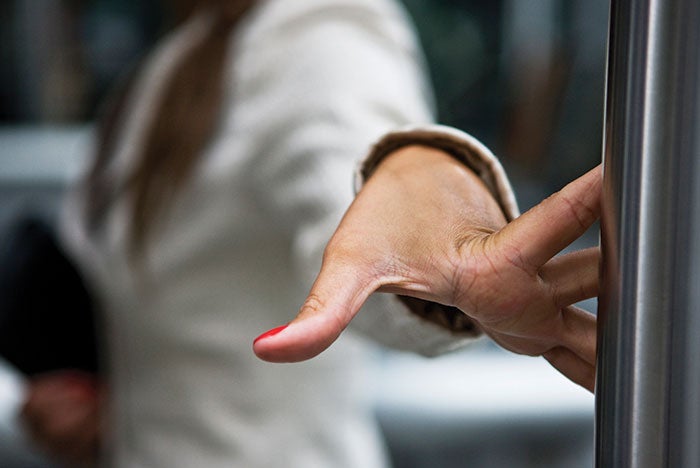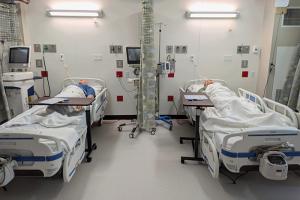Safety campaign raises awareness of hospital access

Brigham and Women’s Hospital’s new campaign is targeting “piggybacking,” which involves a staff member unknowingly holding a door open for an unauthorized individual.
Brigham and Women’s Hospital (BWH), Boston, has launched a program that encourages its staff to be aware of unauthorized persons who may try to enter the hospital’s secure areas.
The hospital is targeting “piggybacking” or “tailgating,” which involves a staff member holding a door open for a co-worker or patient out of politeness but unknowingly may do the same for an unauthorized or unidentified individual.
The hospital’s communication and public affairs department partnered with its security leaders to launch a campaign in June to raise awareness of the dangers.
Because the issue is difficult to address through technology, it was important to gain staff support so they become vigilant about people following them through a door or getting on an elevator to go to a restricted floor, says Dave Corbin, director of security and parking at BWH.
While the program has only been in place a short time, Corbin is convinced it already has had an impact. Staff are alerting security about areas that seem vulnerable or are challenging persons about being in restricted areas, he says.
The hospital also updated two policies that outline the actions that employees must take if they find themselves being followed by someone who may be unauthorized to access a restricted area: Question the person or contact security.
Employees are provided with reminder cards for how to respond to someone who follows them as they walk through a door or enter an elevator leading to a restricted area. Staff are advised to:
- Stop the person and ask if he or she needs help or has a hospital ID.
- Challenge the person. If someone does not have a badge or visitor ID, he or she will not be let in.
- Assist the person by offering to find a legitimate way to access the area.
- When in doubt about a person’s identity or intent, staff are advised to call security immediately, Corbin says.
As part of the program, the hospital also produced two short videos, “Don’t Hold the Door” and “Be Aware,” that dramatize worst-case scenarios related to tailgating.




